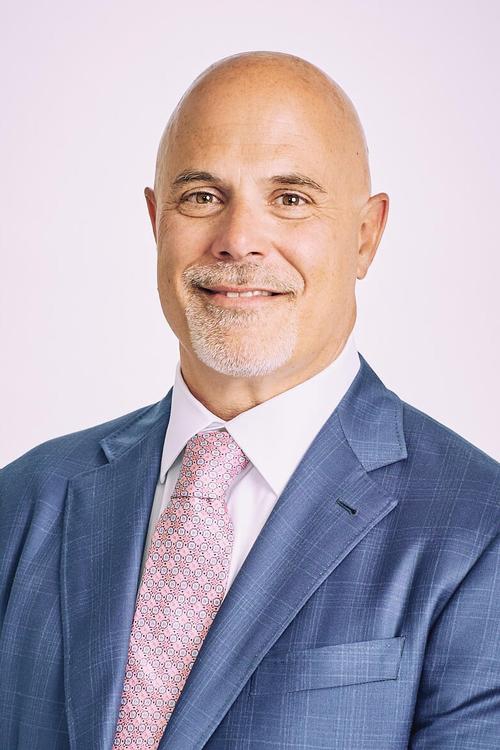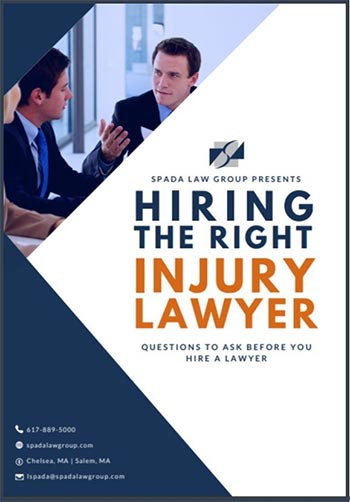
Every year, over one million Americans suffer a slip, trip, or fall injury. The term “slip and fall” is commonly understood to refer to an accident leading to an injury that occurs as a result of slipping or tripping on someone else’s property. A slip and fall case is also (and more technically) classified as a “premise liability” claim because it occurs most often on the “premises” of another.
In many cases, it is a property owner (or in a commercial setting, a commercial tenant in control of the property) who is at fault in a slip and fall case. The causes of people slipping and falling are many but over the course of my 27 years of practicing injury law, I have noticed most fall (no pun intended) into a few distinct categories. Flooring is a common cause and preventable hazards such as unlevel woodwork or linoleum, torn carpeting, damp tiles, limited lighting, and narrow stairwells, are some of the scenarios we see often. To determine whether a slip and fall case has legal merit and will hold up in court, a person must suffer an injury and be able to prove that the property owner or tenant in control of the property either did something they shouldn’t have done or failed to do something they should have done which contributed to the person getting hurt. Due to the many legal requirements imposed on property owners by our Massachusetts laws and Building Codes, it really makes sense to have an experienced injury attorney help you analyze these important preliminary questions.
Slip and fall cases have been broken down into two different types by the Center for Disease Control and Prevention (CDC): same-level falls and elevated falls. As the name states, elevated falls are usually far more serious than same-level falls and tend to result in more severe injuries. While same-level falls are typically categorized as a slip and trip resulting from walking along a surface, elevated falls are described as injuries resulting when you descend from a higher place to a lower level (think stairs). As to be expected, these falls usually end up in more serious injuries, which often results in larger compensation either by verdict or settlement for people who successfully bring a case. One of the more common reasons for an elevated fall is alcohol impairment, and for obvious reasons, someone who was under the influence of alcohol at the time of their fall, will likely have a much tougher time proving their case. We have reviewed cases where because of alcohol consumption, an otherwise strong case becomes one we choose not to accept.
If you have been injured in a slip and fall type accident, there are a few things you’ll want to do early on to give yourself the best chance of success should you make a legal claim:
- Obviously, address your medical concerns fully and promptly. If you feel that you might be hurt, even if it’s a minor injury, it’s crucial that you seek medical attention and get a diagnosis. Besides just helping you get well as quickly as possible, it will document that you were in fact injured. This documentation will be necessary should you decide to pursue a case against the property owner.
- Get it in writing and get pictures. Following your slip and fall, you’ll want to gather the names and contact information of anyone who may have witnessed your fall or the hazardous condition that caused your fall. Witness statements are extremely important. It’s also important to take pictures that will support your case. You will want to make sure you get photos of the precise spot where you fell, in addition to any patches of ice, hazardous staircases, or other risky conditions that may have contributed to your fall. Be sure to write down what you were doing prior to the accident and why you were in the designated area. Make note of the time and date of the fall, how you fell, and any immediate pain that resulted from the fall. Also, gather the clothing and shoes that you were wearing at the time of the incident, and put them aside for safekeeping. These items may be used for evidence at some point.
- Give notice to the property owner as soon as possible. It’s important that you notify the property owner where the slip and fall occurred that you got hurt on the property. Whether the accident happened on a sidewalk, in a store, or at a relative’s house, be sure to report it to the homeowner or manager of the property.
- Avoid social media. While social media has become a way of communication for many, it is extremely important that you limit your exchanges regarding the incident to face-to-face or phone interactions. Also, be very careful about what you post on social media about the accident and/or things you do or can’t do after the accident. Your comments can and will be used against you if possible by either the insurance company for the property owner or their lawyers. Remain calm when communicating with the property owner and abstain from giving a statement until you’ve secured a lawyer.
- Talk to a lawyer early. If you are interested in pursuing legal action after a slip and fall it is in your best interest to speak with an experienced injury attorney as soon as possible. There is often much work that must be done immediately after the accident (getting surveillance video before its erased, obtaining witness statements, visiting the scene before repairs are made etc.) and an experienced attorney can and will get on these issues promptly. These cases can be difficult, so you give yourself your best chance of success by getting help early.
Given the current New England deep freeze, watch your step out there. Snow and ice slip and falls are one of our regions seasonal hazards that we must deal with. Maybe one of our videos on the topic might help. If you think you have a case, we’d love to help you understand your options.
With offices in Chelsea, Salem, and Worcester MA, Spada Law Group provides Boston quality legal representation without the commute into the city with free on-premises or validated parking. We are here to answer any questions you may have. Call or TEXT Spada Law Group today at 617-889-5000 to discuss your situation. The consultation is free and there is absolutely no obligation to hire us. We are open Monday through Friday from 9am to 5pm.
We also have state of the art teleconferencing capabilities and can handle most injury cases virtually without you ever having to come into the office. Check out how we have been helping clients virtually throughout the pandemic.



